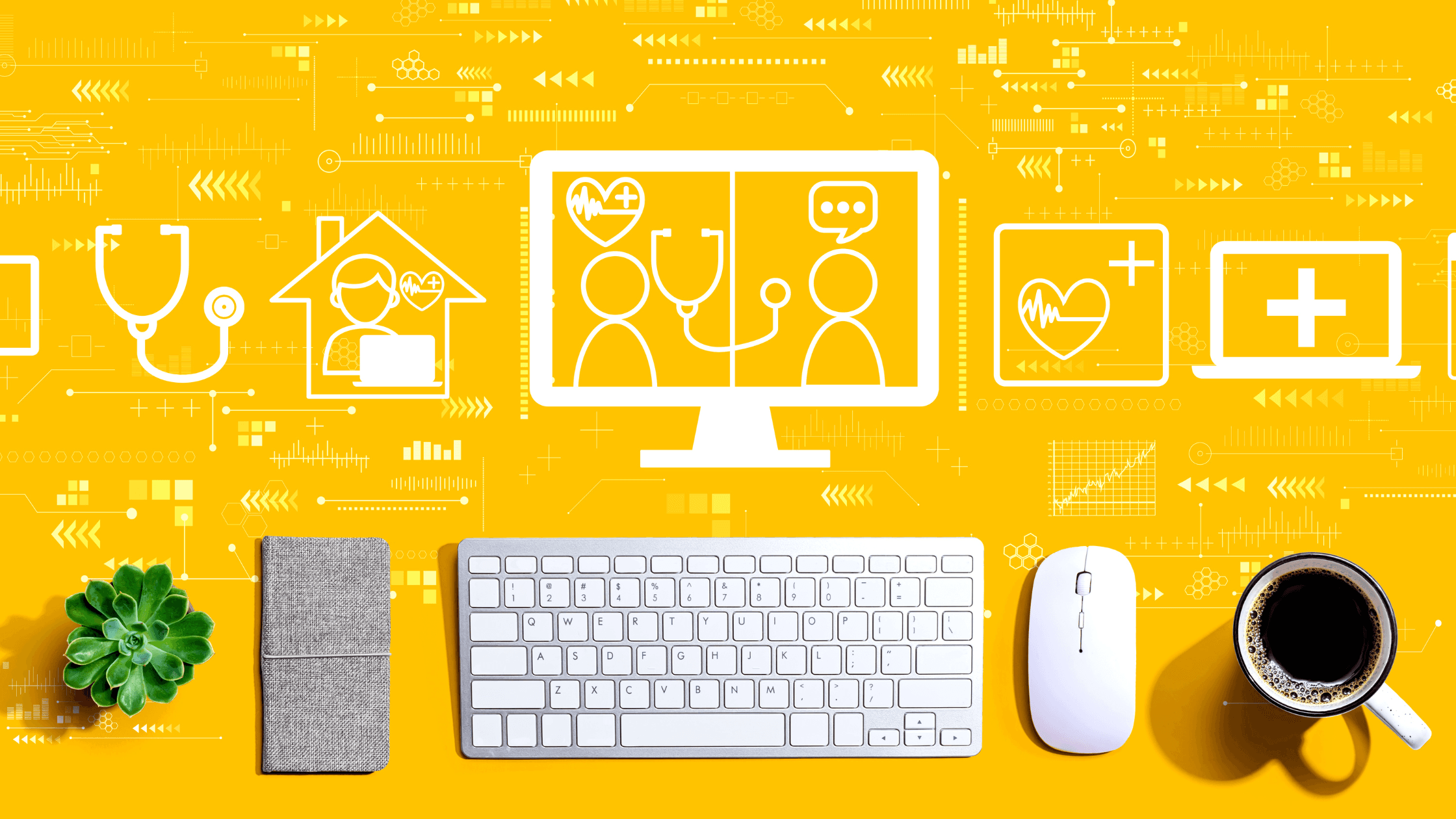Transforming Patient Care: Custom Software Development for Healthcare
The shift towards enhanced care delivery, through custom software development for healthcare, underscores its potential to evolve and innovate, efficiently.
DAte
Oct 16, 2024
Category
How to?
Reading Time
5 min
Healthcare systems are grappling with inefficiencies, often due to outdated technology that hampers seamless patient care and operational effectiveness.
Embracing custom software and SaaS development for healthcare can revolutionize these systems, optimizing processes through tailored solutions that anticipate niche needs and enhance overall healthcare quality.
Understanding Custom Software in Healthcare
Custom software development in healthcare, including the integration of EMR systems, is redefining the future of patient care delivery. By crafting digital solutions, including the use of telemedicine apps that directly address unique needs, this approach underscores a paradigm shift for the industry.
Customized tools vastly improve operational efficiency by addressing specific challenges.
The journey of transforming healthcare is empowered through custom software, which provides a framework for innovation, ensuring adaptable and targeted solutions that evolve alongside technological advancements. It brings precision, personalization, and a commitment to superior patient outcomes through innovative tech solutions.
By integrating custom software, healthcare institutions can transcend traditional limitations, such as a one-size-fits-all model. This adaptation not only fulfills current demands but also positions organizations as pioneers in healthcare excellence. As a result, custom solutions promise to "diagnose" inefficiencies and heal operational ailments effectively.
Benefits of Custom Healthcare Software
In the dynamic landscape of healthcare, custom software solutions are heralding transformative change during the test phase. Tailored to the intricacies of each organization, these solutions enhance efficiency and patient care.
Custom software simplifies workflows and minimizes errors through each iteration, ensuring thorough product validation at every step. This means healthcare professionals can focus on what truly matters: patient care.
Meanwhile, heightened data security is obtained through bespoke systems. They protect sensitive information with robust, adaptable security measures.
Cost-efficiency increases with custom solutions by reducing reliance on generic software and simplifying medical billing processes. This leads to optimized resource allocation.
Furthermore, custom software seamlessly integrates with existing technology, enhancing the tech stack by supporting interoperability and facilitating efficient data exchange. It elevates the patient experience by enhancing communication and data sharing.
Ultimately, the vibrant world of custom healthcare software paves the way for innovation. Expect a future where care is comprehensively improved and uniquely patient-centered.
Improving Patient Experience
Custom software transforms the patient journey.
Today's healthcare landscape is vibrant with innovations that prioritize patient experience. By leveraging custom software and application development for healthcare, institutions can create intuitive interfaces that enhance usability for both patients and staff, fostering an environment of seamless interaction. Ultimately, personalized software empowers patients by providing real-time access to their health information, facilitating better decision-making and engagement in their care process.
Empathy translates into efficient, patient-friendly digital solutions.
Technology becomes an ally to bedside care, minimizing wait times and streamlining processes - By utilizing patient portals, what once took significant time in waiting rooms now happens with a few taps on a patient portal. This empowers patients and allows healthcare providers to deliver care that truly matters.
By focusing on enhancing individual experiences, custom healthcare software delivers personalized service models, building trust and satisfaction even as systems evolve. Healthcare institutions can anticipate increased patient satisfaction as they harness bespoke software to simplify complex healthcare processes, ensuring each interaction is meaningful and efficient. Empowered by these advancements, the future of patient care shines bright with possibilities.
Enhancing Data Management
Unparalleled data management solutions, a cornerstone of technological advancement, elevate healthcare efficiency. Custom software development for healthcare ensures seamless integration of disparate systems, translating raw data into actionable insights. This, in turn, fosters informed decision-making and enhances overall patient outcomes.
Secure Data Storage
In an era of digital transformation, secure data storage is essential for healthcare providers.
Advanced encryption methods protect over 85% of healthcare data, ensuring security and confidentiality remain paramount.
Healthcare organizations must implement robust security protocols to protect sensitive patient information from breaches and unauthorized access. By leveraging custom software development for healthcare, institutions can adapt to evolving security threats, ensuring patient trust and compliance with regulations.
Custom solutions offer a tailored approach—creating a scalable and secure environment that safeguards data integrity, ensuring scalability as healthcare demands grow. With personalized software, healthcare providers can focus on delivering exceptional care, confident in the resilience of their data systems.
Streamlined Data Access
In the fast-paced medical landscape, having quick and efficient access to patient data is paramount for providing timely care.
Enhanced Efficiency: Custom software centralizes data, reducing the time spent on retrieval and interpretation.
Improved Accuracy: Automated data integration minimizes errors associated with manual entry and transfers.
Faster Decision-Making: Real-time data access facilitates prompt decisions crucial for patient outcomes.
Seamless Connectivity: Ensures easy access to diverse data points across departments and disciplines.
Increased Productivity: Streamlined processes free healthcare professionals to focus on patient care rather than data management.
Custom software development for healthcare empowers providers by delivering precise, curated data at their fingertips.
This technology fosters a comprehensive view of patient histories, enabling improved diagnostics and personalized treatment plans.
Facilitating Remote Patient Monitoring
In today's dynamic healthcare environment, the advent of custom software development for healthcare is revolutionizing remote patient monitoring. This technology enhances the continuum of care by allowing healthcare providers to access real-time data, empowering them to make informed decisions swiftly and efficiently, whether they're in the clinic or managing patients from afar. As healthcare embraces digital transformation, these innovative solutions stand as a beacon of progress, ensuring patient wellness is monitored consistently and comprehensively, thus fortifying patient-provider relationships and amplifying the quality of care delivered.
Telehealth Solutions
Revolutionizing healthcare delivery, tech solutions like telehealth solutions, including telemedicine apps, have emerged as pivotal in bridging the gap between patients and providers.
Video Consultations: Facilitate patient-provider interactions without geographical constraints.
Remote Diagnostics: Enable healthcare professionals to perform assessments through connected technologies.
24/7 Access to Care: Patients gain continual access to medical advice and support.
Personalized Health Management: Tailors medical advice and treatments through data-driven insights.
These advancements, along with the implementation of patient portals, foster usability, accessibility, scalability, and continuity, reshaping how care is provided and received.
As the healthcare sector evolves, embracing telehealth solutions promises a more connected and efficient future.
Wearable Technology Integration
The integration of wearable technology marks a groundbreaking evolution in custom software development for healthcare, enhancing patient engagement and care personalization.
Real-Time Health Monitoring: Collects vital health data seamlessly.
Improved Patient Compliance: Encourages adherence to treatment plans.
Data-Driven Insights: Provides clinicians with valuable analytics for tailored patient care.
Early Detection: Identifies potential health issues swiftly.
Enhanced Patient-Provider Communication: Facilitates proactive healthcare interactions.
By harnessing the power of wearable devices, healthcare providers can deliver dynamic and customized solutions. Such innovations in wearable technology set the stage for a future where healthcare is both proactive and precise.
Optimizing Workflow for Healthcare Providers
In the realm of healthcare excellence, custom software development emerges as a beacon of transformative innovation, streamlining intricate workflows. Tailored solutions enable healthcare providers to optimize operational efficiency, ensuring that crucial patient interactions are swift, accurate, and seamlessly coordinated.
By embracing the advantages of a robust digital framework, healthcare providers embark on a "tech-enabled journey". This is not merely a shift but a quantum leap, redefining how responsibilities are allocated. As a result, the integration of these advanced systems allows providers to focus more on delivering exceptional care, thus heralding an era where efficiency enhances every aspect of patient interaction.
Automating Administrative Tasks
Automating administrative tasks in healthcare can dramatically enhance operational efficiency and redirect focus toward patient-centered care.
Patient Scheduling: Streamlines appointments, reduces waiting time, and improves patient satisfaction.
Medical Billing and Claims Processing: Automates insurance verification and claims, decreasing errors and processing delays.
Records Management: Facilitates secure, organized access to electronic health records (EHRs), ensuring compliance and data accuracy.
Inventory Management: Optimizes medical supplies tracking, preventing shortages and overstocking.
By leveraging custom software development, including SaaS development, healthcare providers can automate, simplify, and accelerate tedious administrative processes through iterative iteration cycles during the test phase.
This automation liberates healthcare professionals, allowing them to concentrate their expertise and dedication on uniquely human aspects of care delivery.
Enhancing Coordination Between Teams
Custom software development and application development for healthcare hold the potential to revolutionize the dynamics of team coordination within medical facilities. By fostering seamless communication and unified data access, healthcare teams can collaborate more efficiently and effectively.
In 2023, healthcare institutions increasingly recognize the importance of product validation in custom software solutions tailored to their specific needs. These solutions enable distinct departments, from radiology to cardiology, to synchronize their efforts, resulting in more precise diagnoses and streamlined treatment plans for patients.
With advanced software tools, healthcare teams can transcend traditional barriers of information silos. These tools integrate medical records, lab results, and treatment histories, facilitating seamless data exchange and creating a cohesive environment where multi-disciplinary teams can see the bigger picture, leading to better patient outcomes.
Imagine the power of integrated platforms that connect specialists, nurses, and administrative staff without the constraints of time or physical space. This digital transformation empowers healthcare providers to coordinate robustly, ensuring that patient information is readily available and accurately shared across all relevant parties.
By prioritizing state-of-the-art software solutions, healthcare organizations can transform their team dynamics, paving the way for a future where collaboration is second nature and exceptional patient care is the norm.
Ensuring Regulatory Compliance
Custom software development for healthcare must neatly align with the rigorous demands of regulatory compliance to ensure efficacy.
In 2016, healthcare organizations faced a historic transformation with the introduction of the 21st Century Cures Act. This pivotal legislation aimed to expedite the delivery of medical advancements, necessitating that healthcare IT systems adeptly navigate the complexities of compliance while facilitating innovation in patient care.
Today, it’s no longer enough to merely uphold regulatory standards; healthcare solutions must proactively champion the spirit of the regulations by driving transparency, improving patient data security, and enhancing the interoperability of electronic health records (EHR) and electronic medical records (EMR). This requires a sophisticated understanding of the healthcare landscape and the strategic deployment of custom software solutions.
Developers not only need to be astutely aware of existing guidelines but also anticipate future regulatory directions. By crafting adaptive systems that are both compliant and forward-thinking, healthcare institutions can stay ahead of potential legislative changes and foster an environment of continuous improvement.
Custom software development and tech solutions transform compliance from being a mere requirement to an opportunity. It ensures seamless integration and adherence to EMR systems, strengthening trust in healthcare delivery.
Integrating Advanced Technologies
Integrating advanced technologies, a hallmark of transformative healthcare, offers boundless potential. Custom software development for healthcare harnesses these innovations, embedding sophisticated systems to elevate patient care, increase operational efficiency, and optimize data analytics for actionable health insights.
As healthcare embraces the potential of AI and machine learning, anticipation turns into tangible benefits. Algorithms organize volumes of patient data, providing real-time analytics. From early diagnosis to personalized treatment plans, these technologies empower providers, ensuring innovative care delivery. Ultimately, sophisticated technology integration is not just additive; it’s transformative for healthcare.
AI in Diagnostics
AI transforms medical diagnostics.
With the emergence of AI, diagnostics has leapt forward. AI-driven tools not only enhance the accuracy of diagnostic processes but also expedite them, providing clinicians more time to focus on patient care. Through custom software development for healthcare, AI algorithms are tailored specifically to address unique diagnostic challenges, thereby significantly bolstering diagnostic confidence and precision.
AI applications in diagnostics.
This custom development elevates diagnostics to a new level—delivering profound insights from massive datasets, streaming seamlessly through patient portals to pinpoint anomalies and predict diseases earlier.
By leveraging machine learning and neural networks, AI algorithms proficiently analyze medical images, detect patterns, and offer diagnostic suggestions. Consequently, healthcare professionals can reach diagnoses faster and with greater assurance, shaping a future where AI-powered diagnostics become the cornerstone of predictive and preventive medicine.
Machine Learning for Predictive Analysis
Machine learning transforms predictive analysis, revolutionizing healthcare by anticipating patient needs and improving outcomes through intelligent data interpretation and analysis.
In 2016, Harvard Health, a renowned medical research institution, predicted that machine learning would reshape healthcare by providing insights into disease progression and patient trends. By analyzing vast datasets, machine learning algorithms identify patterns that can predict future health events. Machine learning is proving invaluable in forecasting disease outbreaks and hospital admission rates.
Today, it’s not just about knowing what will happen; it's understanding the underlying causes behind those predictions. Custom software development for healthcare is paving the way for predictive analysis models that unravel complex relationships and offer healthcare providers actionable insights. This transformative technology enables practitioners to allocate resources more efficiently, improving patient care and satisfaction.
Embracing the potential of machine learning, healthcare leaders can now foresee potential healthcare challenges and turn them into opportunities for groundbreaking preventative strategies. The cultivation of vast, predictive analytics empowers healthcare sectors by transforming collected data into forward-thinking strategies that promise enhanced patient care and operational efficiencies.
The future is bright for machine learning and predictive analysis in healthcare. This new horizon is driven by relentless innovation and collaboration.
Cost Efficiency with Custom Solutions
Tailored software reduces unnecessary expenditures.
In the realm of healthcare, custom solutions significantly cut costs. Not only do they cater to the unique operational needs of healthcare facilities, but they also optimize resource allocation, minimizing redundant processes. Consequently, custom software development for healthcare emerges as a beacon of efficiency in the quest for cost-effective patient management.
Customization mitigates waste and redundancy.
By replacing generic software with specialized systems, organizations can save on - not only initial installation costs but also ongoing maintenance required by off-the-shelf - thus fostering sustainable, cost-efficient healthcare models.
These innovative applications enable healthcare providers to streamline medical billing and other administrative tasks, liberating resources for patient-focused activities. With customized software adapting to evolving needs, healthcare institutions can confidently navigate financial constraints, simultaneously achieving peak operational performance and advancing the quality of care delivered.
Steps to Develop Custom Software for Healthcare
Embarking on application development, saas development, and custom software development for healthcare begins by identifying precise needs and objectives essential for success, focusing on product validation and choosing the right tech stack to meet these goals.
In this process, it is imperative first to conduct a comprehensive analysis involving both technical experts and healthcare personnel. This collaboration ensures that the software aims to address specific challenges, enhances usability, and integrates seamlessly with existing healthcare systems. Thorough understanding through discussion and consultation forms the foundation upon which practical, user-friendly innovations are built.
Subsequently, focus should shift to crafting a detailed blueprint of the software solution. By developing clear specifications, stakeholders can envision how the software will function within the healthcare environment, ensuring necessary features and benchmarks are properly aligned with strategic goals.
Finally, rigorous testing and iterative refinement during the test phase are crucial to delivering a robust, high-performing solution. This phase involves continuous feedback loops from end-users to fine-tune functionalities, maximize user experience, and ensure compliance with regulatory standards. A commitment to constant improvement fosters resilience and adaptability in embracing the future of healthcare technology.
Future Trends in Healthcare Software Development
Radiant possibilities emerge on the healthcare horizon.
Emerging technologies, including telemedicine apps, are shaping healthcare software like never before. The drive towards AI and machine learning is redefining predictive analytics by offering clinicians the power to anticipate patient needs better than ever before. Meanwhile, blockchain technology is paving the way for secure and transparent patient data management systems. Collectively, advancements are bringing forth new levels of efficiency and accuracy.
Augmented reality is revolutionizing surgical procedures.
Patients are experiencing care that is more personal and tailored to their unique needs as precision medicine advances. Not only do these advancements cater to developing personalized treatment plans, but they also serve as the backbone for improving diagnostic accuracy and treatment outcomes, thus revolutionizing patient-centric care.
Moreover, the continued integration of Internet of Medical Things (IoMT) technologies promises unprecedented connectivity, ensuring real-time data exchange among the healthcare workforce, which is essential in emergency care and chronic disease management. Together, these innovations are establishing a landscape where technology empowers professionals to deliver outstanding healthcare services with confidence and precision.
Author
Elena N.
Elena is a seasoned low-code CTO at Invental with over 6 years of development experience. Leveraging expertise in innovative technologies and low-code platforms, the author has consistently delivered impactful and efficient solutions, driving digital transformation and enhancing business operations.
Follow



